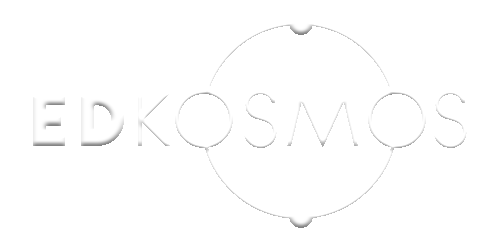The Nursing Post Graduate Program Certificate is a preparatory program that provides training for?internationally educated nurses?for adapting to Canadian best practices so that they can assume entry-level nursing roles within the Canadian health care system. ?Students will develop critical thinking skills used in nursing and develop cultural awareness and administration skills that are an important part of nursing in Canada. This program introduces a breadth of knowledge and skills from nursing and related disciplines aimed to meet the complex health needs of clients in the constantly evolving practice environments in Canada. During the program, students will work on test-taking strategies and nursing topics in preparation for the?Nursing Community Assessment Service?(NCAS), which is a pre-requisite to writing the?National Council Licensure Exam?(NCLEX RN). NCAS provides a three-part competency assessment for internationally-educated health practitioners (IEPs) i.e. health care aides, licensed practical nurses, registered nurses, and psychiatric nurses ? who hope to practice in British Columbia. NCAS offers a consistent approach for evaluating the extent to which an IEP?s competencies are substantially equivalent to those of a Canadian health professional entering practice. The NCAS assessment process is a mandatory registration requirement for some regulatory organizations. NCAS is the only competency assessment service that allows an applicant to have their skills and competencies assessed for two different health care roles at once. Thus, a registered nurse can be assessed for competency as a licensed practical nurse, and a licensed practical nurse can be assessed for competency as a health care aide. The advantage of this approach is that applicants who may not be able to demonstrate all the requisite competencies to enter the workforce in the role they prefer might be able to work as a different kind of healthcare worker if they can demonstrate the competencies for that other role. That means that IEPs can enter the workforce faster, and simultaneously pursue the upgrading or education required to gain competencies for their preferred role. To successfully pass NCLEX requires more than just reviewing content tested on the exam. It also entails knowing how to effectively make nursing judgments.?Some internationally educated nurses try to write the exam on their own, but many have failed. Even though these nurses are qualified health care professionals in their own country, their?struggle is usually due to the language/comprehension barrier, the difference in nursing standards and difficulty in cultural adaptation. Sprott Shaw College?s Nursing Post Graduate Program teaches the specific occupational language and cultural skills necessary to work effectively as a nurse in Canada and to apply this knowledge to the National Council Licensure Exam. Students should be prepared to attend classes 32 hours per week and then do additional study hours of 20-30 hours per week. Student success on the exam is determined by the amount of time students put into practicing their English, reviewing the Canadian Nursing system and practicing NCLEX sample exam questions. In order to work as an RN in Canada, Internationally Educated Nurses (IENs) must complete a 4-stage application process: Stage 1:?Apply to the National Nursing Assessment Service (NNAS Website: http://www.nnas.ca/) : This application is required for verification of credentials and initial assessment of qualifications. The outcome of this assessment will determine if further training is required. Stage 2:?After receiving a report from NNAS, the student may apply to the relevant College of Nurses in Canada of their choice such as CRNBC (British Columbia), CARNA (Alberta), SRNA (Saskatchewan), CRNM (Manitoba), CRNO (Ontario) etc. The licensing body will review the NNAS report submitted and will confirm if eligible to write the exam (or if further training is required). Please note:. An English proficiency test is a requirement (IELTS, CELBAN or equivalent). Stage 3: Complete NCAS assessment to determine if IEPs meet the entry to practice competencies in Canada safely and ethically. This involves 3 assessments: a) computer-based assessment; b) simulation lab assessment and c) oral assessment. Stage 4:?Assessed registration requirements (supplementary education and NCLEX-RN): IEN?s will receive an assessment letter outlining their requirements to register including any further required coursework in addition to the successful completion of NCLEX. For more information on the registration requirements and application process visit the different Canadian nursing licensing body websites i.e. www.crnbc.ca PGCN program will also prepare IEN students to become Health Care Assistants in Canada after successfully completing the HCA provincial program content. The work done by HCAs is based on a set of fundamental values, beliefs and ethical principles that are consistently reflected in all aspects of their work with clients, families, team members and others. Amongst these core values, beliefs and principles, which serve as foundations of HCA practice, are those related to: Human BeingsOlder AdultsHealth and HealingHealthcareCaring and CaregivingThe Family in Health and HealingUnderstanding Culture and Diversity The Sprott Shaw Post Graduate Certificate in Nursing has been recognized by the?BC Care Aide & Community Health Worker Registry?as meeting the requirements of a Health Care Assistant Access Program. Upon successful completion of practice education courses PGCN3929 and PGCN3930, students will be eligible for registration with the BC Care Aide Registry in the category: Graduates of an HCA Program in BC. The Coordinator will assist with the application process so that you can practice as a registered Health Care Assistant. In addition to the HCA Access certificate, students will also receive the following certificates: Assisting in Medication AdministrationCare in the Home SettingCare in Acute Care SettingCare in the Community Setting Note:?Standard First Aid BLS, Crisis Prevention and FoodSafe will be completed during the program Learning Objectives Graduates of the Sprott Shaw College Post Graduate Certificate in Nursing Program are prepared to demonstrate the following competencies: Understands the purpose of the Standards of Nursing Practice in BC and the CAN Code of Ethics and their application in various nursing roles and practice settings; therefore, maintain competencies of professional practice.Understands Ethical Practice with competence in professional judgment and practice decisions guided by the codes of ethics for registered nurses. Uses critical inquiry in the decision-making process, and maintains therapeutic, caring and culturally safe relationships with clients and then the health care team.Demonstrates an understanding of Client-focused Provision of Service to clients across the lifespan. Using the specialized body of knowledge in the following focused areas of nursing care: Physical Examination, Women?s Health & Childbearing, Children?s health Problems to Psychiatric and Mental Health Counselling, General and Perioperative Nursing Care., Care of the elderly and vulnerable population.Competent application of nursing knowledge for the purpose of the NCAS, as well as to create and maintain therapeutic, caring and culturally safe relationships with clients and the health care team in the future.Understand the different Scope of Practice, Standards of Practice and Practice Standards for RN, RPN, LPN and HCA in Canada.Understand the different roles in delivering safe and competent care as HCA, LPN, RN and LPN. Related Nursing Post Graduate Programs: Post-Graduate Certificate in NursingPost-Graduate Certificate in Nursing with Practicum Share this program:FacebookTwitterWhatsAppEmailPrint



